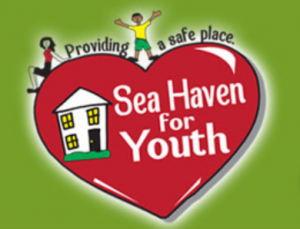Get to Know a Grantee: Sea Haven
Body
Every month, the RHY Clearinghouse highlights the work of RHY grantees through the Get to Know a Grantee questionnaire. Their responses illustrate the great variety of work being done among the FYSB grantee community and allow organizations to share their insights on the work that they do. It is our hope that their work can inspire collaboration and the sharing of experiences and ideas. Contact us if you’d like your grantee organization to be featured.
For this edition of Get to Know a Grantee, we spoke with Christina B. Jackson, Executive Director of Sea Haven, Inc. Sea Haven provides emergency services to young people ages 13 to 17 in the Myrtle Beach area and holds Basic Center and Street Outreach Program grants from FYSB.
NCHYF: How long have you had a FYSB grant?
CHRISTINA B. JACKSON: Sea Haven has secured and maintained DHHS-FYSB grants for more than 20 years. The Sea Haven Basic Center has been funded approximately 26 years, the Transitional Living Program for 17 years (we’re currently not under a FYSB grant but are sustaining the program), and the Street Outreach Program has been funded for 17 years (except for the 2013-2016 grant cycle, but program services continued).
NCHYF: What other sources of funding are essential to your program?
JACKSON: We’re greatly helped by state funding from the South Carolina Department of Juvenile Justice, foundation funding, corporate grants, planned giving strategies, annual individual and business contributions, the local Utility Round Up Program (in which people round up the dollar amount when they pay their monthly bills and the extra money goes to people who need financial help), a Department of Education Title 1 grant, Continuum of Care (CoC)-HUD Rapid Re-housing grant, local civic groups, local fundraisers, and social giving campaigns.
NCHYF: What’s the primary need of homeless youth in your community?
JACKSON: The primary need of homeless youth in our community is safe, affordable housing.
NCHYF: What has been your most important collaboration with a local partner?
JACKSON: The most important collaboration for Sea Haven is with the Total Care for the Homeless Coalition, our regional CoC. I have served on the CoC board as Vice President, which means Sea Haven is at the forefront of learning about funding opportunities through HUD and other government resources. With this funding Sea Haven has been able to house youth in apartments and assist them in transitioning to permanent housing.
For youth ages 13 to 17 in the Sea Haven Basic Center, our relationship with the schools and law enforcement is most valuable in helping Sea Haven work with youth and provide recommendations on safety exit plans and future outcomes. When a homeless runaway youth is found on the beach or boulevard by law enforcement, Sea Haven is the first resource to be utilized in helping officers come up with the best solution for that individual.
NCHYF: What sets your organization apart from other similar organizations?
JACKSON: Sea Haven is located in the heart of the Grand Strand stretch of South Carolina beaches, where youth congregate looking for jobs. Often, they sleep on the beach or boulevard for a couple of nights but soon find that the beach is not exactly what they hoped it would be. Sea Haven is the only nonprofit working with specifically homeless runaway “street” youth in Horry County and surrounding areas. Sea Haven programs have been recognized on a national level as “model programs,” and our staff has received awards and presented at numerous conferences for RHYTTAC/FYSB and other partner agencies throughout the states. Sea Haven has incorporated the Positive Youth Development philosophy by engaging and encouraging youth to remain committed to meeting their long-term goals.
By including youth in Program Advisory Meetings and creating positions for employment throughout the agency, youth feel valued and motivated to continue moving forward to self-sufficiency and independence. Lastly, Sea Haven has sustained program operations for two separate program components when federal funding was not awarded.
NCHYF: What do you wish more people in your community (or the country) understood about youth homelessness?
JACKSON: It is our hope that the general public will fully understand the contributing and risk factors of youth homelessness, and that not every youth chooses to live on the streets. Youth homelessness will not end until more stakeholders are vested and come to the table for the same vision, additional resources are provided for mental health and substance needs, and the community removes the blinders or “out of sight” mentality.
